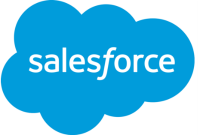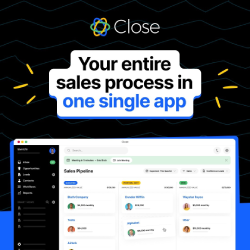
TeamSupport is a comprehensive, cloud-based customer support platform designed specifically for B2B organizations. Unlike traditional help desk tools that focus on individual tickets, TeamSupport centers around the entire customer relationship, giving support, success, and product teams a unified view of every client. It helps companies manage complex, multi-user accounts, streamline communication, and strengthen long-term relationships.
The system integrates advanced ticketing, self-service, automation, analytics, and AI-driven insights to help support teams operate proactively rather than reactively. Whether you’re running a SaaS company, software vendor, or technology manufacturer, TeamSupport bridges the gap between support and success—transforming customer service from a cost center into a strategic growth engine.
Key Features
-
Account-Based Ticketing System
TeamSupport shifts focus from individual users to entire organizations. Each ticket links directly to a customer account, offering a 360° view that includes ticket history, product usage, communication records, and sentiment analysis. This approach allows teams to see the full customer context before responding, reducing back-and-forth and improving resolution quality. -
Customer Distress Index (CDI)
A unique metric exclusive to TeamSupport, the CDI uses data from past interactions, ticket volume, and satisfaction trends to measure account health. It identifies at-risk clients early, allowing proactive engagement before issues escalate or churn occurs. -
Integrated Communication Channels
The platform supports omni-channel communication, including email, chat, web forms, and customer portals. Internal collaboration tools—like agent chat, ticket linking, and product tagging—ensure everyone from support to engineering stays aligned. -
AI and Automation Tools
Built-in AI assists with ticket categorization, predictive analytics, and trend detection. Automated workflows handle repetitive tasks such as routing, SLA monitoring, and status updates, freeing agents to focus on high-value interactions. -
Robust Reporting and Dashboards
Customizable dashboards visualize KPIs like resolution time, satisfaction rate, and team efficiency. Analytics extend beyond ticket metrics, helping leaders understand how support activities influence retention and revenue. -
Knowledge Base and Self-Service Portal
Customers can access articles, guides, and FAQs through branded portals. Agents can also convert solved tickets into public documentation, reducing incoming requests and building a resource-rich ecosystem for clients. -
Integrations and API Access
TeamSupport integrates with CRMs like Salesforce and HubSpot, as well as project tools like Jira. Its REST API enables flexible data exchange with virtually any external system, supporting smooth alignment across departments.
Use Case Highlights
-
SaaS and Software Vendors
Ideal for companies managing subscriptions, updates, and technical issues across multiple accounts. The platform links tickets to product versions, helping dev teams quickly reproduce and resolve bugs while keeping customers informed. -
Technology Manufacturers and Distributors
Perfect for organizations supporting hardware or enterprise solutions where multiple users share the same corporate account. Account-based visibility ensures support consistency across different contacts and time zones. -
Customer Success Teams
Beyond fixing issues, TeamSupport helps success teams monitor client health, track satisfaction over time, and identify upsell opportunities. CDI data and historical analytics guide strategic retention decisions. -
Multi-Product or Multi-Brand Businesses
Companies offering several product lines or brands can manage all support streams from one platform. TeamSupport keeps communication organized while maintaining brand-specific portals and metrics. -
Internal Support and IT Departments
TeamSupport’s workflow automation and knowledge management make it a strong fit for internal IT service desks or managed service providers that require structure, accountability, and transparency.
Benefits
-
Proactive Customer Retention
With AI-driven insights and the Customer Distress Index, teams can address potential churn before it happens. This transforms support from reactive problem-solving to proactive relationship management. -
Cross-Department Alignment
By integrating support data with CRM and product management tools, TeamSupport ensures sales, success, and engineering all operate from the same source of truth—reducing miscommunication and improving response speed. -
Scalability for Growing Businesses
Whether handling hundreds or thousands of tickets per month, TeamSupport scales seamlessly. Its cloud infrastructure supports distributed teams, multiple brands, and large enterprise accounts. -
Efficiency and Cost Reduction
Automation and self-service options reduce manual workload, letting agents handle more tickets with less stress. This directly lowers operational costs while maintaining high satisfaction rates. -
Strategic Insight into Customer Health
Advanced analytics go beyond typical help desk metrics. Decision-makers can see which accounts are profitable, which are at risk, and how support performance affects revenue retention.
User Experience
TeamSupport’s interface is designed for clarity and collaboration. Dashboards provide instant visibility into key metrics, while ticket layouts emphasize context over clutter. Agents can view related tickets, shared customer data, and conversation history in one place—minimizing confusion and saving time.
Customers benefit from branded self-service portals that reflect the company’s identity, offering a professional and trustworthy experience. The mobile-friendly design supports agents on the go, while internal chat and tagging features enhance teamwork during complex cases.
Overall, the user experience emphasizes speed, visibility, and connection—allowing support teams to operate as a unified extension of the customer’s business rather than an isolated department.












